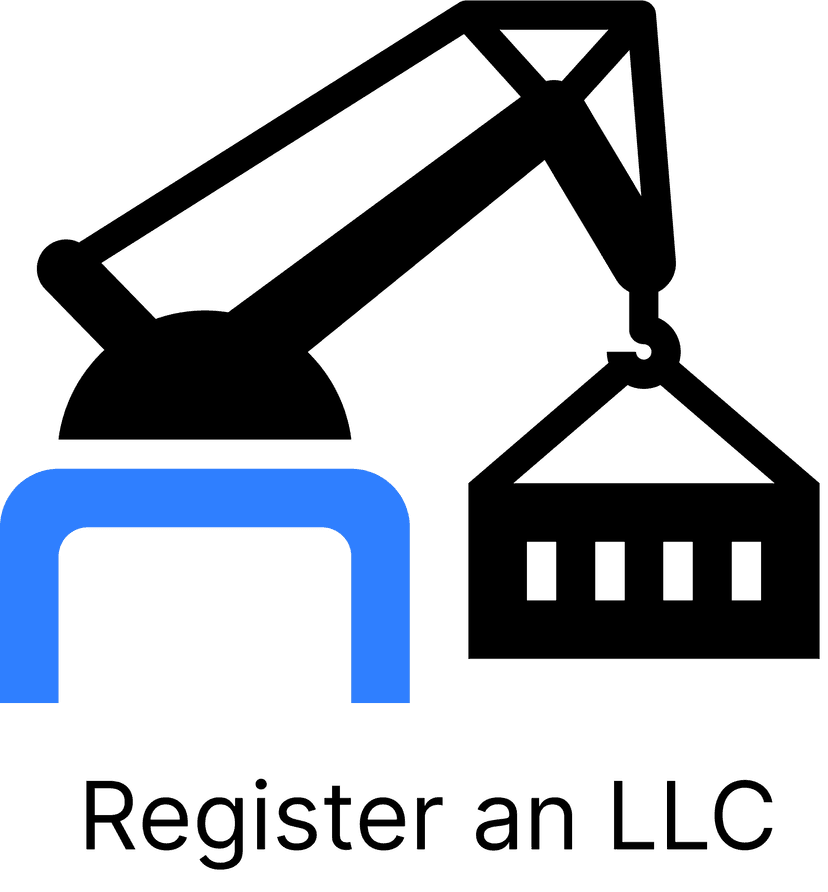Start an LLC

How do I start an LLC?
An LLC, which stands for limited liability company, is a business entity structure that offers the personal liability protection of a corporation along with the tax benefits of a partnership. In other words, members of an LLC are not personally liable for the liabilities or debts of the company. Furthermore, the company's income is "pass through" meaning that an LLC's revenue gets passed to the members and is taxed as personal income rather than being hit with a double taxation seen by corporations.
Startups and early stage companies will look towards LLCs when forming their business for a handful of reasons:
- They are easy and cost-efficient to set-up and maintain
- They offer personal liability protection, meaning the member's personal assets are not at risk
- They have favorable tax laws
If you are starting your business, you likely will want to start off as an LLC.
LLCs are an excellent option for business owners to limit their responsibility for company debts, otherwise referred to as liabilities. Separation of liability is possible because the LLC exists separately from its owners, otherwise referred to as its members. In order to form an LLC, you will need to file certain paperwork that is specific to the state in which you are looking to file in.
While each state has its own process, rules, and regulations, there are some template steps that you will need to take regardless of where you are setting up your LLC.
To register as an LLC, you will need to follow these six steps:
1. Choose a name for your LLC
Generally speaking, you can't have the same name as another business entity, so it is important to include some research into your process of picking out a name for an LLC to ensure that you are requesting a name that is available. You can search online to determine if the name you are looking for is available in the state you are registering in.
Another thing to keep in mind in your search for a name is your competitive landscape as well as companies with similar names. If you have competitors in your space, it is important to pick a name that differentiates yourself from them so potential customers don't get confused. Likewise, be sure that you don't pick a business name that is similar to another popular business, as that will inevitably make it harder for you as a business to rank on Google as you have to compete with their keywords.
Other benefits of choosing a proper LLC name for your company:
- Getting a domain that aligns with your company name. You can search to see if a specific domain is available as well before filing for your LLC.
- Avoiding overlap in names can help you stay away from infringing on trademark protections of other organizations.
- Your name will stick with you, meaning you will build your branding around your name, so pick something you're comfortable growing with.
2. File articles of organization with the appropriate state agency
When registering your LLC, you typically need to file articles of organization with the Secretary of State. The articles of organization tend to include the LLC's name and address, the names of the members, and the name and address of the registered agent. The registered agent is the individual on file as the legal point of contact for the LLC.
Filing articles of organization has some legal processes and steps to it. Keep reading below into the Tools & Resources section of this article to learn more about some ways we recommend approaching this process so you don't have to deal with these legal steps.
3. Obtain any necessary licenses and permits
Different businesses will need different licenses or permits to operate. For example, if you are in the gambling or alcohol realm, you will need specific licenses to operate and participate in your services. Here are 14 common licenses/permits you may need, with links to deeper descriptions on them:
- Local Business License
- Peddler's License
- Occupational Licenses, Permits and Certificates
- Cleaning or Janitorial License
- Vendor or Sales Privilege License
- Gardening and Landscaping Business License
- Food Business, Restaurant and Food Truck Licenses
- Liquor Licenses
- Tobacco Licenses
- Health Permits and Licenses
- Contractor and Tradesman Permits
- Fire Inspections and Permits
- Beauty Salon and Cosmetologist Licenses
- Building, Planning and Zoning Permits
4. Create an operating agreement
An operating agreement lays out the rights and responsibilities of the members of the LLC. This is a complicated legal document that tends to require a layer or 3rd party service to put together. Keep reading along to the Tools and Resources section where we will outline services we recommend looking towards.
5. Register for state taxes
Once you have your LLC, you will need to register for state taxes such as sales and use tax and employer taxes, if applicable. Each state tends to have an online portal where you can go to create an account, register your business, and stay compliant with all relevant taxes..
6. File for an EIN
An EIN (Employer Identification Number) is a way to register your business with the IRS, if you have multiple members. This allows you to file and pay taxes for your business itself rather than solely as an individual. In order to apply for an EIN, you can visit the IRS website and follow their steps in setting up your EIN.
NOTE: specific requirements for creating an LLC will vary by state, so it is important to either consult with a lawyer, business advisor, or 3rd party service before continuing down these steps in registering your LLC.
It's one thing to know how to start an LLC, but that is worthless if you don't know when you should do it. Let's break down the relevance of this question based on two high level categories. We'll walk through an explanation as well as provide a score, 1-10, that shows you how relevant this question is whether you do or don’t have a product.
Pre-Product: 5/10
The first scenario we will walk through will be if you do not have a product yet. Whether it is a website or a mobile app, you are still in the ideation or planning phase and have not yet built anything. Maybe you have started development but just aren’t finished with your first version. Whichever it is, we'll get into why this question is or isn’t relevant and why you should or shouldn't care about it if you do not have a product.
If you don't have a product yet, you need to start thinking about the process of registering an LLC. It is imperative, and legally required, that you have an LLC before you go to market. So, be sure that you are familiar with this process and have it on your roadmap to take care of before you actually launch your product and go to market.
Live Product: 10/10
The second category is if you do have a live product. Maybe you just launched your business or maybe it's been live for years and you're continuing to improve its quality and release new features. Regardless of the scenario, if your product is live, this question carries a different weight of relevance.
You are legally required to have a legal business entity if you have a live product and are out in the market. So, if your product is live, you need to be familiar with this process as you not only should have gone through it but you will need to understand the details of your operating agreement, know what your EIN is, understand how to pay taxes, and all that other fun stuff that business owners have to do!
Starting an LLC can be difficult to do alone. It is something that can require a lot of time and even more critical thinking. Thankfully, there are tools and services out there that can help you through this journey. Keep reading below to find out more!
There are many services out there that will help you create your LLC and walk you through all the relevant steps in getting your business entity off the ground. We'll walk through five services we recommend looking into, along with their associated costs:
1. Incfile
Incfile helps you quickly and easily create your LLC or other business entity. Save money and time with Incfile’s $0 (+ state fee) LLC Registration process. Plus, they have a full suite of startup services (like banking and bookkeeping), which means Incfile not only helps you get started, but supports you in your continued success as your one-stop shop.
Cost: $0 + state fees
2. Doola
Doola offers a simple way to do business in the US — even if you don't live there! They will help you form your company, get your EIN, and even help you open your business bank account. Thousands of global founders use doola to accurately, safely, and easily incorporate a US-based LLC from anywhere in the world.
Cost: $197 + state fees
3. ZenBusiness
ZenBusiness' all-in-one platform and team of experts quickly and accurately form your LLC, plus keep you on track as your business grows. Having helped over 400,000 business, they'll walk you through each of the steps, and offer services from just setting you up all the way to maintaining your organization annually. Their basic offering takes care of the filing while their most popular offering includes an operating agreement as well.
Cost: $199 + state fees
4. LegalZoom
Get the legal help you need, with their do-it-yourself services or attorney advice. LegalZoom is the nation's leading provider of personalized, online legal solutions and legal documents for small business, including LLC formations. Having helped over 3.5 million business, LegalZoom is an expert in their space.
Cost: $79 + state fees
5. RocketLawyer
Rocket Lawyer is an online legal technology company that makes the law simpler and more affordable for businesses, families and individuals. As a large institution, RocketLawyer is a go-to service that helps you beyond just LLC formations.
Cost: $39.99/month
- An LLC, which stands for limited liability company, is a business entity structure that offers the personal liability protection of a corporation along with the tax benefits of a partnership.
- You should be aware of whether or not you need to create or be an LLC, regardless if you have a product or not.
- There are tons of services out there than can help you out with this process. They take care of every part of the process so you don't have to.

